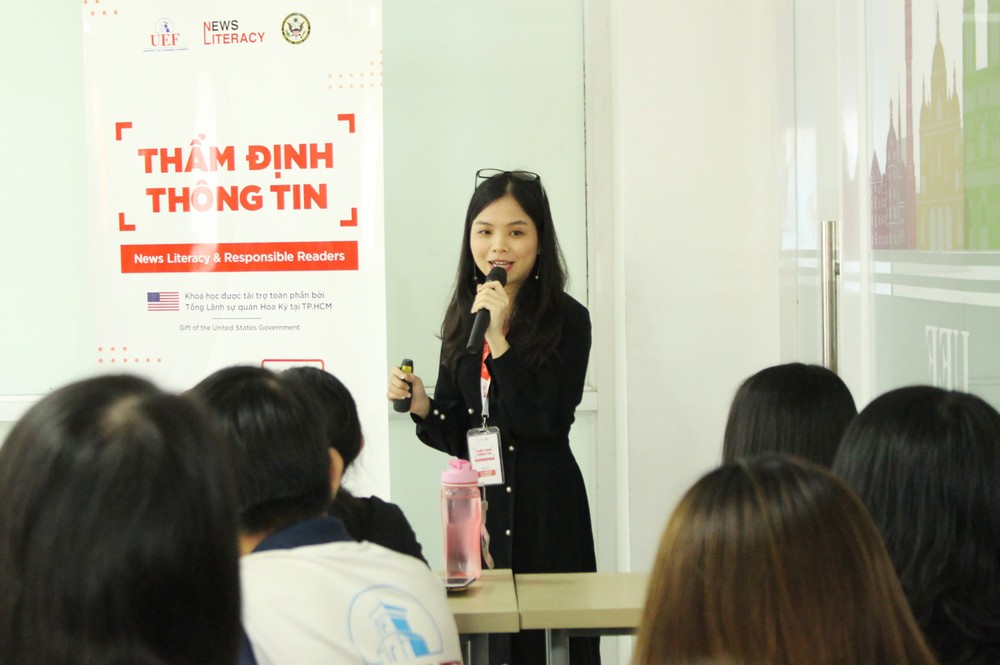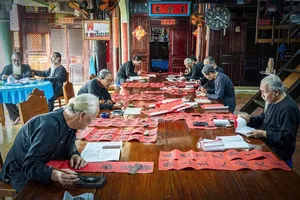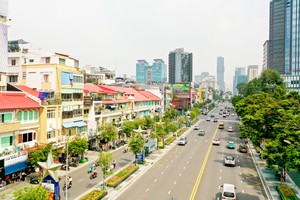
Social media expert Nguyen Ngoc Long stated that currently using AI and human resources to detect and remove harmful content is one of the important solutions. However, he also emphasized it is widely known that social networks and social media platforms do not want to fully apply this because it prevents them from having significant traffic sources.
Lecturer Nguyen Thanh Hoa also commented that it is impossible to eliminate all groups because the nature of technology platforms is that the more users they have, the more profit they make. Only when serious cases do they handle and delete violating groups.
According to statistics and research of the Electronic Information Department of Ho Chi Minh City Department of Information and Communications, KOLs (online celebrities) include internet celebrities and industry experts, or Influencers in the Google world are divided into Celebrities, TV personalities, athletes, thought leaders, Bloggers, Vloggers, and Instagram influencers. KOLs or influencers create a scandal to increase influence usually has 6 steps including creating a special story, making allies, building a support group and at the same time forming an anti-fan group to attract more attention, attracting press agencies and public opinion to post information, finding a lawyer, and simultaneously they will make an excuse to escape this incident such as serious illness, hospitalization. Finally, they are invited by authorities to pay fines and they will end the story by selling goods.
This era is the era of attention-based economics. The more attention you get, the more sales you get. YouTube and platforms that pay based on attention and views are typical. That's why many people and organizations take advantage of creating groups with the purpose of attracting interactions between individuals and small groups to create common strength to sell, defraud, and achieve other set goals. Of course, there are still groups established to share information, good stories, and common interests in various fields. But even some initially good groups can slowly be turned into scammers, spreading bad information, Dr. Nguyen Thanh Hoa analyzed in detail.
In fact, each group or each social network itself has its own set of community standards. As with Facebook, hate speech is prohibited while it doesn’t allow bullying or harassment, no suggestion of abuse or sexual misconduct of any kind. Additionally, Facebook users are not permitted to post content that promotes, encourages, colludes or provides instructions for suicide or self-harm.
Founders of the social network Zalo also do not accept groups created for the purpose of harassment or to cause fight; plus, Zalo bans the posts or sharing of false, fictitious information, unverified information, sensitive information or causing confusion in public opinion, negative affecting people and society. However, the established standards also mean that there are always ways to bend the rules. For instance, the simple phrase suicide is banned on Facebook, but writing sui.cide is okay.
CEO Ngo Tran Vu of Nam Truong Son Security Company (NTS Security) said that in terms of technology, negative, bad, and malicious groups on the internet currently have tricks such as posting messages and clips according to user trends to attract participants. Through groups with similar interests, cybercriminals will lead users to their true purpose.
According to a survey of 1,063 Vietnamese people in 2023, the Global Anti-Fraud Alliance (GASA) report said that Facebook, Gmail, Telegram, Google, and TikTok are the main channels exploited by scammers who take advantage of these social platforms to reach victims in Vietnam. Roughly 70 percent of Vietnamese people face fraud once a month. However, 55 percent of those surveyed believe they can recognize scams, while 14 percent said they are not confident about the situation and 22 percent of victims said they could not resist the temptation of attractive offers. Worse, 66 percent of victims do not want to report the scam to the authorities. Joriji Abraham, head of GASA, said that only 1 percent of victims can reclaim the money they lost.
According to psychology expert Pham Thi Thuy, based on a psychological perspective, the more negative information a group contains, the more shocking the association name is, and the more attractive it is. This phenomenon is caused by the fact that these groups have stimulated curiosity, FOMO syndrome - fear of lack of information, interest in learning about the bad, the unique, the strange, the shocking of a part of netizens, especially amongst young people.
She also pointed out the culprit of this phenomenon that the psychological crisis of a segment of individuals in society, emptiness, loss of direction, and poor mental health make young people depressed. Moreover, young people spend time surfing the internet so much and easily fall into these groups. This cause is very worrying, and needs early warning and timely intervention, said Ms. Pham Thi Thuy.
Sharing the same opinion, expert Nguyen Ngoc Long observed that group builders also apply sophisticated strategies such as using attractive images and creating lively discussions to stimulate user interaction. Meanwhile, some social network users may not be aware of the consequences of following or interacting with these groups. Others may be curious or want to find out what these groups are saying.
Mobile phones, computers, social media and the internet are part of the daily lives of children and young people. Many bad, toxic, and even illegal groups can still openly operate on social networks. Lawyer Phan Vu Tuan said that it is motivated by four factors. Firstly, by nature, because of the digital technology age, social networks are an indispensable part of life, they connect work, and relationships, and are tools to provide news and entertainment.
Second, many people with poor social awareness and a lack of understanding of the law have taken advantage of psychology to create these toxic groups. In addition, young people's skills in selecting information on the internet are still low. Third, the diversity of information sources in large quantities, coming from different forms of social networks, makes it very difficult to intervene and completely eliminate. Fourth, only individual people post bad or harmful content, so there is no evidence for intervention and handling and abolishing the above-mentioned associations and groups.
























